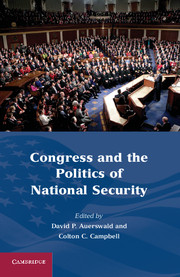8 - Enemy Combatant Detainees
from Part Three - Policy Challenges: Contours of Debate
Published online by Cambridge University Press: 05 June 2012
Summary
Detention policy for the global war on terrorism (GWOT) has proven to be one of the most nettlesome instruments of state policy for the administrations of both George W. Bush and Barack Obama. Even to seasoned observers of politics, it was a mystery how this contorted legal process had come about after ten years of executive orders, congressional intervention, legal decisions, and public debates. This chapter will explore the reasons that detention policy has been such a difficult instrument for our strategic approach to combating terrorism.
Detention policy is paradoxical unto itself and further paradoxical in its relationship with targeted killing. How much due process is required to authorize targeting and how much due process is owed to detainees once captured? These legal questions potentially affect battlefield decisions. Intelligence is required to counteract terrorism, but if detainees have a right not to talk, the detention is of less value. On the other hand, targeting results in no new intelligence unless other documents are part of the targeting process. This chapter will focus on the issue of detention, but surveillance, detention, interrogation, and targeting are all part of the same continuum. The tensions within this paradox are a function of varying interpretations of constitutional power, as well as of shifting classifications of terrorism as either a domestic criminal act or a form of military asymmetric power by a non-state actor under international law.
- Type
- Chapter
- Information
- Congress and the Politics of National Security , pp. 167 - 188Publisher: Cambridge University PressPrint publication year: 2011

